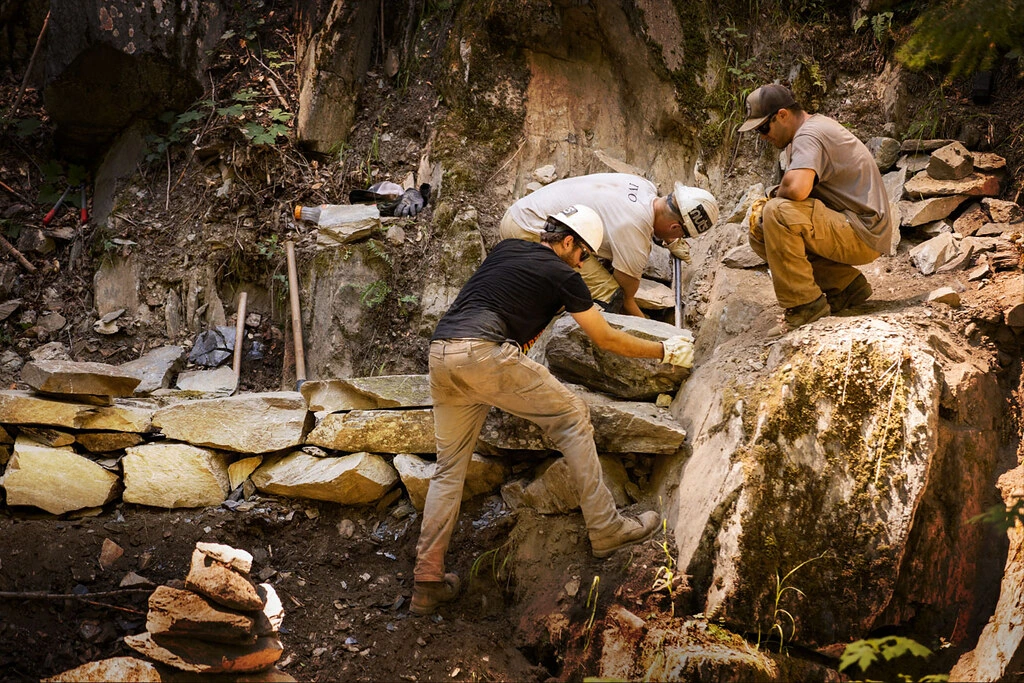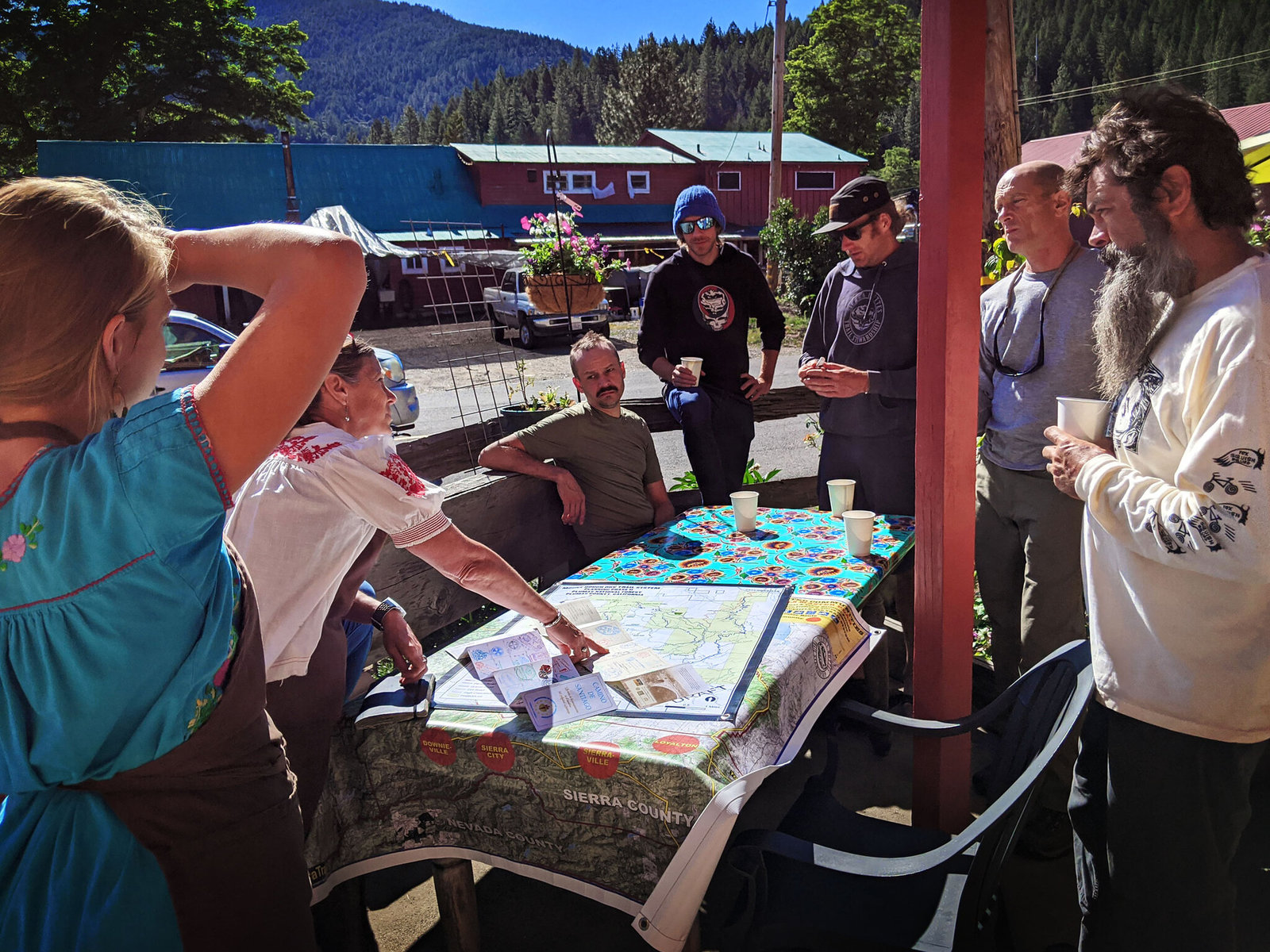Economy
The worst Australian public policy decision of the 21st century
I regard the changes made to the carve-up of GST revenues among the states and territories by the Morrison Government in 2019, with the support of the then Labor Opposition, and continued (indeed extended) by the Albanese Government, as possibly the worst Australian public policy decision of the 21st century thus far. But very few Continue reading »
America’s displacement anxiety and the decade of living dangerously
The 2020s was once described by former Australian prime minister Kevin Rudd as a “decade of living dangerously”. He was talking about the bilateral tensions between the U.S. and China. I would suggest that it’s a dangerous decade in large part because the collective west, led by the neocon political elite in Washington, are experiencing Continue reading »
Labour trumpets endorsement by ‘leader’ who boasted of part in Truss disaster economics
40yr-Tory’s praise not the compliment Labour thinks it is…
Labour has put out a video trumpeting an endorsement by ‘former business champion and Cicero chair’ Iain Anderson for the austerity policies – disguised as the risible ‘fiscal discipline’ – of Keir Starmer and Rachel Reeves.
But – as with almost everything the red Tory regime tries – it’s already backfired massively, with Twitter user ‘jrc1921‘ pointing out that in 2022 Anderson boasted of his ‘almost 4 decades’ of being a Tory and his part in the ‘economic reform’ of then-soon-to-be Tory PM Liz Truss. Truss went on to have the shortest tenure ever as British prime minister – just forty-five days – and was ousted by the Tories for crashing the pound to its lowest-ever rate against the dollar, doing colossal harm to the UK economy and being the most useless and unpopular PM ever.
Starmer and co are clowns – except clowns are trying to be funny and don’t usually support genocide or help build a police state.
SKWAWKBOX needs your help. The site is provided free of charge but depends on the support of its readers to be viable. If you’d like to help it keep revealing the news as it is and not what the Establishment wants you to hear – and can afford to without hardship – please click here to arrange a one-off or modest monthly donation via PayPal or here to set up a monthly donation via GoCardless (SKWAWKBOX will contact you to confirm the GoCardless amount). Thanks for your solidarity so SKWAWKBOX can keep doing its job.
If you wish to republish this post for non-commercial use, you are welcome to do so – see here for more.
Trust governments with AI? Perhaps not, when there is a revenue stream involved
International Monetary Fund (IMF) managing director, Kristalina Georgieva, was recently quoted in the Guardian (Tuesday 16/1/24) saying that “in most scenarios artificial intelligence (AI) would probably worsen overall inequality across the global economy and could stoke social tensions without political intervention”. Australia’s vulnerability to such AI-induced inequality would appear to be high, while our chances Continue reading »
Basics of Monetary Economies
I am planning to write a textbook on monetary economies. I will draft it section by section and chapter by chapter, and put down the drafts here for feedback and comments. The first section is given below – it is an introduction to the topic, and provides some motivation for the study, as well as hints of the methodology to be adopted.
Introduction & Motivation
A Monetary Economy is one in which the use of money is essential to the functioning of the economy. That is, without money, people would starve, and massive amounts of economic misery would result. Since monetary economies have dominated the world for centuries, this seems to us like a natural state of affairs. However, a study of history reveals that monetary economies came into existence only a few centuries ago, and eventually came to dominate the globe. Most pre-modern societies were not monetary economies. For instance, a feudal economy was not a monetary economy. The landlord owned the land, and workers on the land would receive all necessary support – food, clothing, housing, etc – from him. In return, they would work the land and produce crops, and provide other services. No money was needed for the basic necessities of life. The landlord could sell excess crops for money, and buy fineries from foreigners, but this was not essential for existence. Even today, in many areas of the world, rural subsistence economies far from urban centers are often self-sufficient, and can function without money. These non-monetary economies are excluded from the scope of our study.
Our goal in this textbook will be to clarify how monetary economies function, and how they have evolved over time. This is important because conventional modern textbooks of economics do not correctly describe monetary economies. In these textbooks, money does not serve an essential function. This point is recognized and articulated in these textbooks using the terminology “neutrality of money”. For instance, a popular textbook by Mankiw states that:
Over the course of a decade, for instance, monetary changes have important effects on nominal variables (such as the price level) but only negligible effects on real variables (such as real GDP). When studying long-run changes in the economy, the neutrality of money offers a good description of how the world works.
Exactly contrary to this, Keynes stated clearly in his landmark book entitled The General Theory of Employment, Interest, and Prices, that money plays an important role in both short and long run – it is not neutral. If money is neutral, then money plays no essential role in the economy, and so there is no essential difference between monetary and non-monetary economies. In this textbook, we will explain how money, far from being neutral, is a central driver of economic activity. Conventional textbook analysis, which takes money as neutral, leads to deep misunderstandings about modern real world economies.
The false assumption of neutrality of money led to the failure of economists to understand the causes of the Global Financial Crisis in 2007, and also to their failure to take corrective actions which could have prevented the Great Recession which followed. The battle of ideas, embodied in economic theories about money, is described in “Completing the Circle: From the Great Depression of 1929 to the Global Financial Crisis of 2007”. It is useful to briefly outline how economic theories changed over the course of the 20th Century:
- Classical Economists argued for the neutrality of money, along with other ideas, which lead to the conclusion that unemployment can only be a short-run phenomena. In the long run, unemployment will be eliminated by the workings of the free market.
- Following the Great Depression of 1929, large amounts of unemployment which persisted for long periods of time was observed. This was directly in conflict with theories of classical economics.
- Keynes then came up with a new theory, which had many revolutionary ideas, dramatically different from the assumptions of classical economics. One of the central ideas was that money is not neutral. In particular, in the labor market, the supply and demand for labor, and hence the rate of employment is strongly affected by the quantity of money available.
- Keynesian ideas came to dominate macroeconomics for about three decades following World War 2. In particular, the idea that free markets will not automatically eliminate unemployment, leads to the necessity of the government policies required to create full employment. Application of Keynesian policies led to full employment in USA and Europe for about three decades.
- The oil shock of the 1970’s led to the failure of Keynesian policies. Development of monetarism by the Chicago school of economists led to the re-instatement of pre-Keynesian ideas about the neutrality of money and the idea that free markets lead to elimination of unemployment. This came to be known as neoclassical economics, because it rejected Keynesian ideas, and went back to classical economics.
- A concerted campaign was carried out by monetarists to discredit Keynesian theories and rebuild Economics on neoclassical foundations. See Understanding Macro III: The Rule of Corporations. This was highly successful. The Monetarists went from a minority and eccentric school to the mainstream orthodoxy by the early 1990s. It became impossible to publish Keynesian and post-Keynesian views in mainstream top-ranked journals.
- Over the decade of the 1990s economic performance in the Western world became flat – fairly low growth, but no ups and downs of business cycles which had been characteristic of capitalist economies for a long time. This led to celebrations of “the Great Moderation” by the monetarists. Robert Lucas, Nobel Laureate and leading Chicago schools economist, announced triumphantly in his Presidential Address to the American Economic Association in 2003, that we economists have conquered the business cycle, and from now on, recessions will not happen.
- The Global Financial Crisis of 2007 took the economics profession by surprise, just as the Great Depression of 1929 had come as a surprise. Paul Krugman wrote the book “The Return to Depression Economics” arguing that insights of Keynes continued to be valid, and to provide deeper insights into the GFC than was available from leading neoclassical macroeconomic theories of the time. Paul Romer wrote a scathing article entitled “The Trouble with Macro” in which he argued that modern macroeconomics is based on fundamentally flawed doctrines, and leads to wildly incorrect predictions.
This is more or less the current state of affairs, as good alternatives to conventional macroeconomics are unavailable in the mainstream. The mainstream macroeconomic theories are based on assumptions which have no relation to reality. For more details, see “Why Do Economists Persist in Using False Theories?”
We will conclude this introduction to monetary economies by discussing some of the key elements of the approach we will be using. First, while mainstream macroeconomics rejected Keynesian ideas, a group of theorists known as Post-Keynesians have continued to develop the ideas of Keynes, building on his fundamental insights. This has led a branch of macroeconomics which provides much deeper insights into modern economies then the monetarism which dominates universities today. Our text borrows from these ideas. However, the critical innovation of this textbook is to study economic theory within its historical context.
As described earlier, historical events, and economic crises, have played a major role in shaping economic theories. In fact, we cannot understand economic theory as an abstraction, removed from its context. This is in conflict with the claim implicit in the use of the word “science” – lessons from study of European societies are universally applicable to all societies across time and space (see: The Puzzle of Western Social Science). In fact, all social theory is developed as an attempt to understand historical experiences of a particular society, and cannot be understood as an abstraction, detached from this historical context. Studying economics within its historical context requires a methodology radically different from that currently in use, in both orthodox and heterodox textbooks of economics currently in use around the world. We will discuss this methodology in the next section.
Four Years On: Kemi Badenoch’s Sketchy Brexit Benefits
The Department for Business and Trade published a glossy Brexit Fourth Anniversary Update to mark the fourth anniversary of the UK’s EU departure. Purporting to provide “an overview of Britain's Brexit successes over the last four years”, the document has Kemi Badenoch's fingerprints all over it. Or her photos, at least, taking up two precious pages out of 24.
“The statistics and successes contained within the pages of this booklet tell a powerful story,” her lengthy Foreword intones. As powerful as many another work of fiction. The Foreword continues: “When we left the European Union, there were many forecasts of inevitable decline. These have been proved false.”
If anything is begging to be proven false, it is this blatant propaganda exercise. Accompany me on a stroll through some of its more egregious exaggerations and distortions.
“This newfound agility was crucial in helping us get through the pandemic with the fastest vaccine roll out in Europe – which in turn allowed us to re-open our economy even sooner.”
The false claim of a connection between the COVID-19 vaccine and Brexit seems harder to kill than the villain in a horror franchise. It has been disproven by the UK medicines regulator, by Full Fact, by the BBC and Channel 4 fact checking teams, by the Institute for Government, and by numerous other credible sources. And yet it continues to linger like a turd too buoyant to flush.
“My department has negotiated free trade agreements with 73 countries from Mexico to Malaysia. And we have secured the most comprehensive deal that the EU has ever agreed to in its history.”
Almost all are rollover copies of the ones we enjoyed as an EU member. Important aspects of our temporary Canada deal have recently fallen away, with negotiations to replace them at an acrimonious standstill. The UK’s Australia and NZ trade deals put British beef, sheep and dairy farmers at risk by removing all import quotas over time. By contrast, the EU’s own deal with NZ preserves quotas indefinitely. As for that most comprehensive deal with the EU itself, it is like a rusted-up piston compared to fully frictionless EU membership.
“The UK will also shortly be joining the Comprehensive and Progressive Agreement for Trans-Pacific Partnership. It will make over 99% of UK goods eligible for zero tariffs in some of the world’s most dynamic economies.”
We already have trade deals with all but one CPTPP member, so this is likely to produce pitiful incremental improvement. Indeed, official government projections peg it at just 0.04% of GDP in the long run. And that’s if Canada agrees to ratify our accession to the group, as unanimity is required.
“Within the EU, the UK would not have been able to cut VAT on the installations of solar panels, heat pumps and insulation to zero.”
This statement harks back to a lost past. The EU isn’t frozen like an ant in amber; it evolves. Its VAT regulations changed in April 2022, and Germans currently pay no VAT on solar panels and batteries.
 Watch Byline TV's documentary with Mike Galsworthy
Watch Byline TV's documentary with Mike Galsworthy
“We listened to industry and announced proposals that will increase flexibility for businesses who manufacture and sell products on the GB market. This includes continued recognition of CE rules alongside the introduction of UKCA rules, which will reduce burdens and increase flexibility for businesses.”
Misleading. This applauds the non-imposition of a ridiculous new regime, the UKCA. But businesses are not benefitting from extra flexibility. Nor is their burden being reduced. It is merely not increasing. The retention of the status quo should not be passed off as a benefit.
Related aside: The Tories deployed an identical tactic in their PR for incoming border checks. Their press release on the subject included this helpful note to editors:
“Government analysis estimates that traders will save around £520m per annum under the new model”.
But that figure is benchmarked against an older, never-executed plan. When benchmarked against the reality of the pre-checks status quo, traders won’t save anything. Indeed, their costs will soar by hundreds of millions of pounds a year.
“Since leaving the EU, the UK has secured market access for UK steel and aluminium into the US market. We ended the US ban on British beef and lamb, markets estimated by industry to be worth £66 million and £37 million to UK exporters respectively over the next 5 years”
Another boastful claim that fails to account for the EU’s dynamic nature. In reality, the UK has played catch-up at every stage. The USA lifted its tariffs on EU steel in January 2022, while it took until June 2022 for UK steel to enjoy normal access again. EU beef was allowed back into the US in stages from 2015, but market access to UK beef was only granted in March 2020. Had we stayed in the EU, things would have improved quicker.
“The UK has signed Memoranda of Understanding (MoU) with seven US states with a combined GDP of £3.4 trillion, similar to the GDP of Germany”
This is like describing a plan to buy a chocolate bar from Tesco as potentially being worth £20 billion, the total market cap of the company. MoU are not trade deals. They are also not legally binding, a fact emphasised by FCDO guidance: “A Memorandum of Understanding (MoU) records international commitments, but in a form and with wording which expresses an intention that it is not to be binding as a matter of international law”.
“In February 2023, the UK and Italy agreed a trade partnership to boost exports, help create jobs, increase wages, and grow the economy. The partnership has strengthened our post-Brexit export and investment links with Italy and boosted a trade relationship worth £51 billion”
Italy is in the EU. Logic dictates that we could have concluded the same arrangement while still a member.
“Keeping our own tariff revenue to spend on public services rather than sending it to the EU.”
Although tariffs are imposed on importers, they usually end up being passed on to consumers in the form of higher prices. So this statement is celebrating UK consumers effectively being forced to funnel additional tariff revenue to HMRC.
The points above cover the document’s worst offences, but plenty of smaller devils lurk in the detail. Given its copious flaws, it should be impossible to take anything this booklet says seriously. And yet our right-wing press are already according it the same unquestioning reverence as if it were carved on tablets of stone.
Building More Than Trails
There is some debate as to where the name “The Lost Sierra” comes from, but it’s become the common name — and an apt one — for the lesser-traveled towns, alpine lakes and peaks near Reno, Nevada, and within the northern reaches of eastern California’s Sierra mountains.
More than a dozen communities are tucked away across this area, which is fragmented by the mountainous terrain of the surrounding national forests and, more recently, by extreme wildfire.
Over the past few years, Trinity Stirling, who lives in Quincy and grew up in the Lost Sierra, has made it her mission to help connect these scattered communities with the hopes of giving their economies a boost by creating more recreation opportunities. And that mission starts with trails.
 The Sierra Buttes Trail Stewardship Trail Crew building a solid trail foundation in steep terrain. Credit: Ken Etzel
The Sierra Buttes Trail Stewardship Trail Crew building a solid trail foundation in steep terrain. Credit: Ken Etzel
As the former project manager with the Sierra Buttes Trail Stewardship, Stirling worked on a long-term project to connect more than a dozen rural towns with a long-distance trail stretching about 600 miles. Stitched across federal public land, the trail network is coming together in stages, building off existing trails. So far, about 74 miles are under construction and 30 miles have been finished — with broad support for building more. “A lot’s happening,” says Greg Williams, the group’s executive director. For now, he says the biggest challenge is funding.
The goal of the Lost Sierra Route, as the long-distance trail will be known, is to improve access to public land at a time when more and more people want to get outside, while at the same time connecting isolated communities and working to diversify the regional economy, which grew around the booms and busts of natural resource industries like mining, logging and ranching.
“Obviously we’re connected by roads,” Stirling says. “We have a lot of dirt roads. But one of the early concepts for this project, once it’s built, is creating a community passport.” The passport would encourage trail users to travel from town to town, checking out different businesses and getting a sense of the varied places connected to the trail system.
 Historic buildings of downtown Quincy in the fall. Credit: Patrick Cavender
Historic buildings of downtown Quincy in the fall. Credit: Patrick Cavender
Already, the region is seeing success in building out a stable recreation economy. It’s a popular spot for mountain bikers, who are drawn to existing trails and races like the annual Downieville Classic, which Williams created in 1995. Williams, who started the stewardship group in 2003, says as he worked on more trail projects, there was increasing interest in a regional system.
“We’d go to Board of Supervisor meetings or Chamber of Commerce meetings and neighboring towns would say, ‘Hey, what about us? We’re struggling. We’re surrounded by national forests. We live in a beautiful place that we feel like people want to come [visit],’” Williams recalls.
Williams points to Quincy, a town of about 1,600 people surrounded by national forest land, as a strong indicator for the potential in creating more recreation opportunities. “Quincy just had a brewery-restaurant open. So now there are two brewery-restaurants in town that didn’t exist before trails were there,” he says. “The local motels are buying new mattresses and painting the sidings…. So we’re seeing it happen.”
Credit: Patrick Cavender
Many mountain bikers stop to eat a well-earned meal at Taylorsville Young's Market. The following day, the Lost Sierra Route will take them to Quincy.
The businesses Williams talks to say they “need more people,” especially midweek.
And more trails, connected and organized, are likely to bring more people. “Nationwide, the outdoor industry just grew to a $1.1 trillion annual industry, which is ginormous,” Stirling says.
The data bears this out.
For decades, rural communities across the country, from New Mexico to Vermont, have looked to recreation as a way to diversify their economies, create resilience and improve quality of life.
This is especially true in areas that grew with extractive industries — oil and gas, mining, grazing and timber — where boom, busts and drought left economies vulnerable, according to Megan Lawson of Headwater Economics, a Montana-based firm that researches outdoor recreation.
 The view of Crystal Lake and Taylorsville in Indian Valley from the top of Mt. Hough. Credit: Patrick Cavender
The view of Crystal Lake and Taylorsville in Indian Valley from the top of Mt. Hough. Credit: Patrick Cavender
Trails can serve multiple purposes for communities, Lawson says, and the economic impact is not only about attracting tourists. Having opportunities to explore trails, fly fish in scenic rivers or take a peaceful walk after work can make places more attractive to live or start a business in.
Lawson says this has been especially true in rural areas, even before the COVID-19 pandemic, which accelerated the growth of the outdoor recreation industry. In 2019, Headwater Economics published a report finding that more people moved into rural recreation counties — on average — between 2010 and 2016 than non-recreation rural counties, where populations fell.
She says rural counties that invested in the infrastructure to support recreation opportunities were more resilient in the face of boom-and-bust cycles and other economic challenges.
Trails are one of the things that brought Jonas Crews, an avid biker, to northwest Arkansas. Crews studies outdoor recreation as an economist for Heartland Forward, a research group that looks at public policy in 20 states (the group, based in Bentonville, Arkansas, was started with funding from the heirs of Walmart, which is headquartered there). Bentonville is the municipal anchor for hundreds of miles of trails, some of which connect to outlying rural areas through gravel paths.
Spring is one of the busiest times. In any given week, Crews says all you have to do is ask people where they are from and you will find out which state is on spring break based on who is using the regional mountain bike trails.
As more people went outdoors and remote work became an option for high-wage service jobs during the pandemic, some workers moved from urban counties to counties with better access to outdoor recreation, a trend not only in hotspots like the Mountain West but across the country.
Credit: Patrick Cavender
The communities along the Lost Sierra Route are in good company: Rural communities from New Mexico to Vermont have looked to recreation as a way to diversify their economies, create resilience and improve quality of life.
In response, Chris Perkins, a vice president with the Outdoor Recreation Roundtable, says that he is “seeing communities of all sizes [that] have all sorts of political backgrounds and demographics around the country invest in outdoor recreation, infrastructure and access like never before.” Yet as more recreation has attracted new residents, cost of living has soared in many towns.
“Tourism is incredible but it doesn’t pay a whole lot, frankly,” Crews notes. He argues that regions have seen success in attracting higher-paying jobs when they diversify beyond tourism, lure outdoor businesses and develop expertise in a specific part of the industry.
Not relying solely on tourism, he says, is vital because “we don’t want to see every town become a ski town where the people that grew up there can’t live there anymore because they can’t afford it.”
 Sierra Buttes Trail Crew member Mandy Beaty refining trail. Credit: Ken Etzel
Sierra Buttes Trail Crew member Mandy Beaty refining trail. Credit: Ken Etzel
Earlier this year, Outdoor Recreation Roundtable released a second version of its rural economic development toolkit. Notably, it included a section devoted to addressing housing issues, what Perkins describes as “the challenge.” But there are other barriers too: Funding for infrastructure, getting community buy-in, varied land ownership and the time it takes to plan new trails.
Working with different parts of communities early on is critical, says Claire Polfus, the recreation programs manager for the state of Vermont. Even successful recreation projects bring change, and “there’s people who win and people who lose out of any change that happens,” she says.
For example, Kingdom Trails, a network of trails spanning more than 100 miles based in East Burke, Vermont, has achieved its goals and more, Polfus says. But it has also hit roadblocks ranging from issues over land ownership to the rising cost of living in the areas surrounding the trails.
She says it’s important to engage first with communities and ask, “What do we want to be?”
In some cases, what a community wants and needs can shift due to circumstances beyond its control.
In 2020 and 2021, the North Complex Fire, the Dixie Fire and the Beckwourth Complex burned through more than one million acres in the Lost Sierra, devastating forests and many of the rural towns at the center of the Lost Sierra Route. The mountains that tower over the region drain into the upper Feather River watershed, which has seen more than half its acreage burn since 2017. The Dixie Fire in 2021 left downtown Greenville decimated, reducing historic buildings to rubble.
Even before the fires, Sierra Buttes Trail Stewardship worked to solicit feedback and build wide support from a wide range of local politicians, government agencies and business organizations.
 Community input has been a key part of Sierra Buttes Trails Stewardship’s efforts. Courtesy of Sierra Buttes Trail Stewardship
Community input has been a key part of Sierra Buttes Trails Stewardship’s efforts. Courtesy of Sierra Buttes Trail Stewardship
Stirling says people are mostly “in alignment” with the idea of building additional trails.
But, she acknowledges, “our region’s catastrophic wildfires reprioritized everyone’s community needs and everyone’s personal interest. We’re still walking this path for connected communities, but also recognizing that yes, trails are not at the top of everyone’s Christmas wish list.”
“Homes and rebuilding communities are there as well,” she adds.
Crushed by negative news?
Sign up for the Reasons to be Cheerful newsletter.
[contact-form-7]
Trails can take years to build out, and the Connected Communities project is years from its full completion. That has provided opportunities to rethink the trails in response to feedback — and fires. Williams, the executive director, says fire “changed the look and feel of the landscape, but also how we look at trails.” The organization plans to look at managing vegetation in the 100-foot corridor around trails to help prevent the spread of future fires. New trails, he says, can also play a role in rebuilding Greenville, a town that was just hanging on, even before the fires.
“Recreation is key to their future,” he says of the Lost Sierra Communities. “A lot of the people who live there live there because of the access to public lands, whether they walk, ride a horse, ride a motorcycle or hop in a jeep and go. That’s super important to their lifestyle and well-being. So this project fits right in line.”
The post Building More Than Trails appeared first on Reasons to be Cheerful.
Finding a way forward: A review of Australia’s relations with China
Let’s not reject forty years of cooperation and exchange with China. Australia has greatly benefitted from trade, investment, cultural exchange and collaboration over these decades. Now, as the United States and Europe threaten to raise tariffs, erect barriers to exchanges and prioritise security concerns, it is time to remember when we espoused multilateralism and openness. Continue reading »
Labor’s tax plan fails low paid workers
The Albanese Government was right to change its previous position on the already legislated Stage 3 tax cuts and to seek a fairer and more equitable taxation system for all Australians. However, its proposed changes fail to deal sufficiently with the increasing tax bites into the incomes of low paid working Australians. The focus on Continue reading »
China: learning from Canute
Regularly, Western media claims that China’s run is near an end and that collapse is just around the corner. So constant has this become, it is like a broken gramophone record. Recently predictions of this collapse have been couched around the indebtedness of some major players in the Chinese property market. The ‘inevitable collapse’, however, Continue reading »

